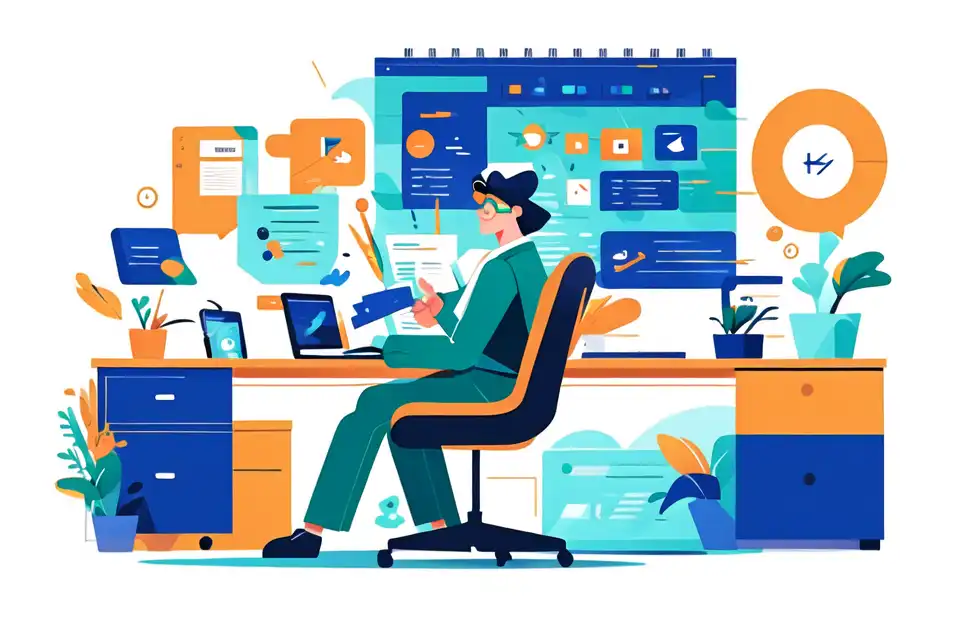Business To Consumer (B2C)
Enhance your understanding of Business To Consumer (B2C) and optimize your operations for success with Lark's solutions tailored for your specific needs in the retail industry.
Try Lark for Free
Use Lark Base to transform your retail business.
Executive summary
In this essential guide, we will explore the key impacts and trends of Business To Consumer (B2C) in retail for 2024. We will discuss the critical implementation considerations and potential benefits that retailers can expect from adopting B2C strategies.
Understanding business to consumer (b2c) in modern retail
Business To Consumer (B2C) refers to the transactions that occur between businesses and individual consumers. In the retail context, B2C plays a significant role in connecting retailers directly with their customers. In this section, we will delve into the current definition and significance of B2C in retail. We will also explore the emerging trends and common misconceptions surrounding B2C, as well as its role in the retail ecosystem.
Implementation and best practices
To successfully integrate B2C into retail operations in 2024, it is crucial to follow best practices. In this section, we will discuss the recommended practices for implementing B2C strategies in retail. We will also address the challenges that retailers may face in adopting B2C for different retail formats. Additionally, we will explore the key technologies and tools that can enhance the effectiveness of B2C in retail.
Learn more about Lark x Retail solutions
Roi and performance metrics
When implementing B2C strategies in retail, it is essential to measure the return on investment (ROI) and key performance indicators (KPIs). In this section, we will provide projections for retail ROI and discuss the metrics that can effectively measure the impact of B2C on sales, efficiency, and customer loyalty.
Omnichannel and customer experience
Creating a seamless experience across different channels is crucial for retailers in 2024. In this section, we will explore how B2C can connect in-store, online, and mobile processes. We will discuss strategies to enhance the customer experience at various touchpoints. Additionally, we will explore how personalization powered by B2C can strengthen customer relationships.
Learn more about Lark x Retail solutions
Operational efficiency
Optimizing supply chain and inventory management is essential for retailers to thrive in 2024. In this section, we will discuss how B2C can contribute to operational efficiency. We will explore strategies for optimizing supply chain processes and effectively managing inventory. Additionally, we will address the importance of workforce management and training in B2C implementation. Furthermore, we will discuss the significance of data security and compliance in retail B2C adoption.
Future-proofing retail strategy
To stay competitive in the ever-evolving retail landscape, it is crucial to future-proof retail strategies. In this section, we will explore emerging technologies and trends for 2024 and beyond. We will discuss long-term strategies that retailers can adopt to gain a competitive advantage. Additionally, we will provide insights on how to prepare for future challenges and opportunities.
Learn more about Lark x Retail solutions
Action plan for 2024
To optimize B2C in retail, it is important to have a clear action plan. In this section, we will provide a step-by-step guide for retailers to implement B2C strategies effectively. We will discuss a prioritization framework and provide key performance indicators for tracking success. Furthermore, we will recommend resources and tools that can support the implementation and ongoing support of B2C in retail.
Conclusion and key takeaways
In conclusion, this essential guide has provided valuable insights into Business To Consumer (B2C) in retail for 2024. We have explored the key impacts and trends of B2C, along with critical implementation considerations and potential benefits. By following the recommended best practices, measuring ROI and performance metrics, focusing on omnichannel customer experience, optimizing operational efficiency, and future-proofing retail strategies, retailers can thrive in the dynamic retail landscape of 2024 and beyond.
Learn more about Lark x Retail solutions
Do's and don'ts for implementing b2c in retail
| Do's | Don'ts |
|---|---|
| 1. Clearly define your B2C strategy and objectives. | 1. Neglect the importance of customer experience in B2C implementation. |
| 2. Invest in the right technologies and tools to enable seamless B2C operations. | 2. Disregard data security and compliance in B2C transactions. |
| 3. Prioritize personalization and customization to enhance customer satisfaction. | 3. Overlook the importance of workforce training and management in B2C adoption. |
| 4. Measure the ROI and track key performance metrics to evaluate the success of B2C. | 4. Ignore emerging technologies and trends that can impact B2C in retail. |
| 5. Continuously optimize supply chain and inventory management processes for efficiency. | 5. Underestimate the importance of integrating in-store, online, and mobile B2C processes. |
Learn more about Lark x Retail solutions
Use Lark Base to transform your retail business.
